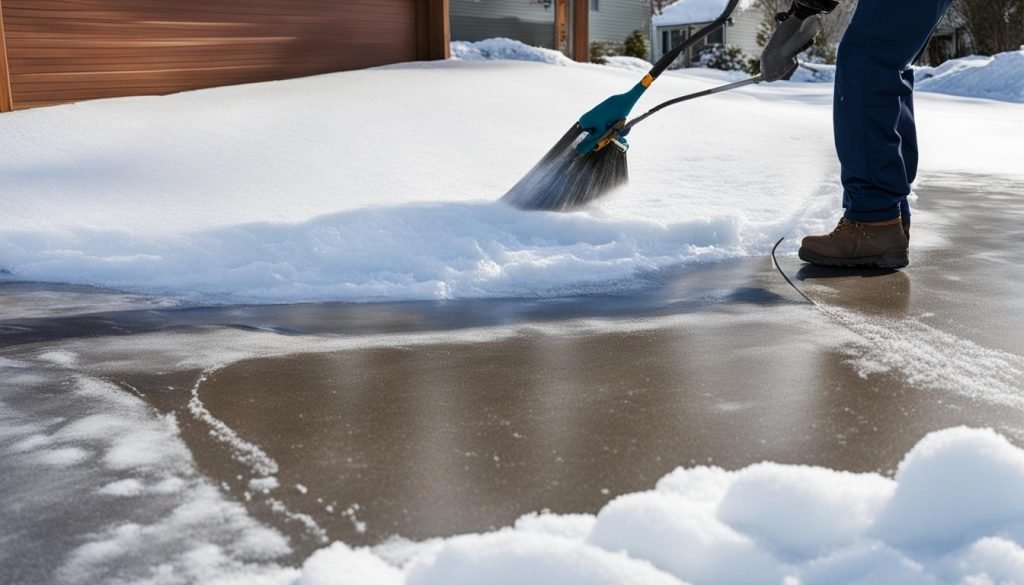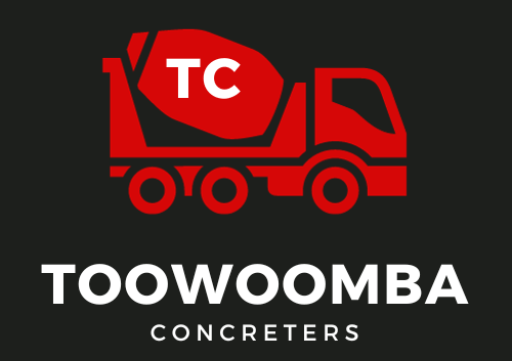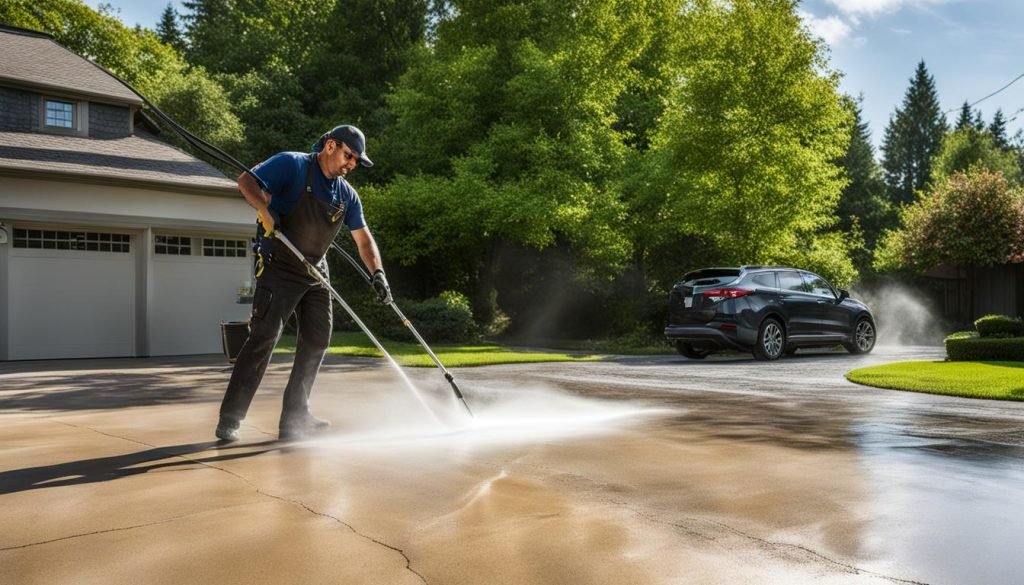Concrete driveways are a popular choice for their durability and aesthetic appeal. However, regular maintenance is essential to ensure their longevity and keep them looking their best. In this article, we will discuss the key tips and best practices for maintaining a concrete driveway, including how often to seal it, concrete driveway care, and recommended maintenance schedules. Click here to Discover top-quality concreting services in the Toowoomba area. Delve into the details with this thorough guide on How to Lay Concrete Driveway: Step-by-Step Instructions, providing comprehensive, step-by-step directions. Covering everything from preparation to finishing touches, it ensures success in your concrete driveway project.
Key Takeaways:
- Resealing your concrete driveway every couple of years is recommended to improve its appearance and protect it from wear and tear.
- Regular cleaning and sweeping prevent the buildup of debris and reduce the chances of permanent marks and discoloration.
- Immediate stain removal is crucial to prevent stains from becoming permanent on your concrete driveway.
- Consider the weight and use of your driveway to ensure it can withstand the desired vehicles and equipment.
- Take precautions with planter pots to prevent potential concrete stains.
The Importance of Resealing
Resealing your concrete driveway is a key maintenance task that should not be overlooked. By resealing the driveway every couple of years, you can enjoy numerous benefits, including:
- Enhanced Appearance: Resealing helps to restore the driveway’s original color and luster, giving it a fresh and attractive look.
- Easier Cleaning: A properly sealed driveway is easier to clean, as the sealer acts as a protective barrier against stains and dirt.
- Reduced Wear and Tear: Resealing provides an extra layer of protection, minimizing the damage caused by daily use, foot traffic, and exposure to the elements.
To ensure the longevity and effectiveness of the resealing process, it is recommended to consider professional services for a thorough and effective application. Although DIY options are available, professionals have the knowledge, experience, and specialized equipment to deliver optimal results.
If you decide to undertake the resealing on your own, here are the general steps to follow:
- Clean the Driveway: Remove any dirt, debris, or stains from the surface of the driveway. This can be done using a high-pressure washer or a suitable cleaning solution.
- Repair Any Damage: Inspect the driveway for cracks, potholes, or other damage. Repair these areas before applying the sealer to ensure a smooth and even finish.
- Apply the Sealer: Follow the manufacturer’s instructions and apply the sealer evenly across the entire surface of the driveway. Use a roller or a sprayer for larger areas.
- Allow for Drying Time: The sealer needs time to dry and cure properly. Follow the recommended drying time provided by the manufacturer before using the driveway.
By resealing your concrete driveway regularly, you can enjoy a beautiful and well-protected surface that adds value to your property and enhances the overall curb appeal.
Regular Cleaning and Sweeping
Proper maintenance of your concrete driveway includes regular cleaning and sweeping to prevent the accumulation of leaves, debris, dirt, moss, and algae. This buildup can not only mar the appearance of your driveway but also cause permanent marks and discoloration.
To minimize the growth of moss and algae, it is advisable to trim overhanging branches and plants that may provide a conducive environment for these organisms. By doing so, you can maintain a clean and healthy driveway.
If you want to ensure that your driveway remains spotless and well-maintained, you can consider professional cleaning services. These services often include high-pressure cleaning and acid washes, which effectively remove stubborn stains and restore the cleanliness and appearance of your concrete driveway.
Regular cleaning and sweeping of your concrete driveway not only enhances its visual appeal but also extends its lifespan. By preventing the buildup of debris and taking preventative measures against moss and algae growth, you can keep your driveway in optimal condition for years to come.
Immediate Stain Removal
Concrete driveways are prone to staining, even when sealed, due to their porous nature. To prevent permanent stains, it is crucial to clean up spills and stains promptly. Whether it’s oil, grease, or petrol, using household powdered detergent or degreasers can effectively remove common stains from your concrete driveway.
If you’re dealing with more stubborn stains that are difficult to remove, considering professional cleaning services can provide you with effective solutions. They have the expertise and specialized equipment to tackle even the toughest stains, restoring the appearance of your driveway.
Remember, the key to preventing permanent stains on your concrete driveway is immediate action. By acting quickly and using the right cleaning products, you can maintain the pristine look of your driveway and protect it from unsightly stains.
| Stain | Recommended Cleaning Method |
|---|---|
| Oil | Apply a layer of powdered detergent or degreaser on the stained area. Scrub it gently using a brush or broom. Rinse off with water. |
| Grease | Create a paste using powdered detergent and warm water. Apply it to the stain and let it sit for a few hours. Scrub the area with a brush and rinse. |
| Petrol | Blot the stained area with an absorbent material, such as paper towels, to remove excess liquid. Sprinkle powdered detergent on the stain and scrub gently. Rinse thoroughly. |
Remember: Always test any cleaning products or methods on a small, inconspicuous area of your concrete driveway before applying them to the entire stained area.
Consideration of Use and Weight
When planning and constructing a concrete driveway, it is essential to take into account the anticipated usage and the weight that the driveway will need to withstand. The strength of the concrete, measured in megapascals (MPa), plays a crucial role in ensuring the driveway’s durability and longevity.
For residential driveways, concrete with a strength of 25MPA is typically sufficient to support regular passenger vehicles and light-duty trucks. However, if you anticipate heavy vehicles, such as delivery vans or commercial trucks, regularly accessing your driveway, a higher strength concrete, such as 32MPA, may be required. It is important to consult with a professional contractor to determine the appropriate strength for your specific needs.
In addition to the strength of the concrete, other considerations, such as the presence of boats, trailers, caravans, or other heavy equipment, should be factored into the planning process. By considering the weight of these additional items, proper reinforcement and structural support can be implemented to ensure that the driveway can withstand the required loads.
Taking the time to evaluate the expected use and weight limits of your concrete driveway will help prevent future damage or premature wear and tear. It is always recommended to consult with a reputable contractor who can provide expert guidance based on your specific requirements.
| Concrete Strength (MPa) | Recommended Usage |
|---|---|
| 25MPA | Residential driveways for regular passenger vehicles and light-duty trucks |
| 32MPA | Commercial driveways or driveways expecting heavy vehicles |
Taking Care with Planter Pots

Concrete driveways can be prone to stains caused by planter pots, especially as the sealer breaks down over time. To prevent water from seeping into the concrete and causing permanent stains, it is important to take precautions when placing planter pots on your driveway.
One simple solution is to use a dish or barrier underneath the pot to catch any water or plant runoff. This will prevent direct contact between the pot and the concrete, minimizing the risk of stains. The dish or barrier can be made from various materials, such as plastic or ceramic, and should be large enough to accommodate the size of the pot.
Regular maintenance is also key to preventing stains on your concrete driveway. Resealing the driveway every few years helps to preserve its appearance and protect it from potential damage. By maintaining a sealed driveway, you create a barrier that makes it easier to clean and reduces the likelihood of stains penetrating the concrete surface.
When it comes to choosing the right planter pots for your driveway, consider using pots that have a saucer or drainage tray attached. This will help to collect any excess water and prevent it from dripping onto the driveway. Additionally, opt for pots without drainage holes, as these can allow water to seep directly onto the concrete, increasing the risk of stains.
By taking these precautions and maintaining a sealed driveway, you can enjoy the beauty of planter pots on your property without the worry of unsightly stains. Remember to regularly inspect the condition of your driveway and address any stains or damage promptly to ensure its longevity and appeal.
Future Planning and Considerations
When it comes to installing a concrete driveway, it’s important to take into account the long-term needs and functionality you require. Planning ahead and making the right choices can save you costs and hassle in the future. Here are some key considerations:
- Choosing the Right Concrete Style: Selecting the appropriate concrete style for your driveway can enhance its functionality and appeal. For outdoor entertaining areas, a smoother finish may be preferred, while heavier grade concrete may be necessary if you plan on using your driveway for boats or caravans.
- Long-Term Needs for Your Concrete Driveway: Think about your future needs and how they may impact your driveway. Consider whether you might need to accommodate additional vehicles, equipment, or even a larger family. Planning for these needs now can ensure that your driveway remains suitable for your changing requirements.
- Low Maintenance Home Improvement: Concrete driveways are known for their low maintenance nature, making them an excellent home improvement choice. With proper care, they can last for many years with minimal upkeep. This means you can spend less time and effort on maintenance tasks and more time enjoying your driveway.
By carefully considering concrete style, long-term needs, and the low maintenance benefits of a concrete driveway, you can make a well-informed decision that will serve you well into the future.
Take a look at the image below to see the different concrete styles you can choose from:
Avoiding Damage in Winter

Winter can be particularly harsh on concrete driveways, with freezing temperatures and snowfall posing challenges to their maintenance. It’s essential to take the necessary precautions to protect your driveway and avoid potential damage. Here are some key tips to keep your concrete driveway in excellent condition during the winter season:
Avoid Deicing Chemicals
Deicing chemicals are commonly used to melt ice and snow on driveways. However, certain chemicals, such as those containing ammonium nitrates and ammonium sulfates, can cause surface damage and deterioration to concrete. To safeguard your driveway, opt for alternative deicing methods that are safe for concrete.
Alternative to Deicers: Sand or Cat Litter
Instead of deicing chemicals, consider using sand or cat litter on your driveway to provide traction and prevent slipping on icy surfaces. These alternatives are safe for concrete and won’t cause any damage.
Safe Snow Removal Techniques
When removing snow from your concrete driveway, it’s crucial to employ safe techniques that won’t harm the surface. Follow these recommended practices:
- Use Plastic Shovels or Snow Blowers: Metal blades can scratch or scrape the concrete, leading to unnecessary damage. Opt for plastic shovels or snow blowers to clear the snow safely.
- Shovel or Blow Snow Immediately: Remove snow as soon as possible to prevent it from accumulating and turning into ice. This proactive approach will minimize the need for excessive deicing measures.
The key is to be gentle and mindful when clearing snow from your concrete driveway, ensuring that you protect its integrity while maintaining a safe and functional pathway.
Summary
By avoiding deicing chemicals, utilizing alternative methods for melting ice, and practicing safe snow removal techniques, you can effectively protect your concrete driveway during winter. These preventative measures will help maintain the longevity and appearance of your driveway, ensuring that it withstands the seasonal challenges while serving you for years to come.
Pros and Cons of Deicing Methods
| Deicing Method | Pros | Cons |
|---|---|---|
| Deicing Chemicals | – Effective in melting ice quickly | – Can damage concrete surfaces – Harmful to vegetation and corrode metal |
| Sand | – Provides traction on slippery surfaces | – Requires additional cleanup after snow melts |
| Cat Litter | – Offers traction and melts ice | – May track indoors if not properly contained |
Preventive Measures for Longevity
Ensuring the longevity of your concrete driveway requires taking preventive measures and avoiding common pitfalls. By reinforcing the edges, preventing tree root damage, avoiding excessive watering, and steering clear of heavy equipment, you can protect your driveway from unnecessary wear and tear.
Reinforcing Concrete Driveway Edges:
One of the vulnerable areas of a concrete driveway is its edges. Over time, these edges can deteriorate and become more susceptible to cracking and damage. To strengthen them, consider reinforcing with dirt or compacted soil. This simple step can provide added support and help prevent potential issues in the future.
Preventing Tree Root Damage:
While trees can add beauty to your property, their roots can pose a threat to your concrete driveway. As the roots grow, they can push against the concrete, causing cracks and uneven surfaces. To prevent this, it’s important to choose suitable tree species and plant them a safe distance away from the driveway. Regularly inspect the area for any signs of root intrusion and take prompt action to prevent further damage.
Avoiding Excessive Watering:
Excessive watering can weaken the concrete and make it more susceptible to cracks and damage. Be mindful of sprinkler systems and ensure that they are not spraying directly onto the driveway. Properly adjust the position and range of sprinklers to avoid excessive water exposure. Regularly inspect the driveway for any signs of water damage or pooling, and promptly address any issues.
Avoiding Heavy Equipment on Driveway:
The weight and pressure exerted by heavy equipment or vehicles on a concrete driveway can lead to permanent damage and cracking. Avoid parking or placing heavy machinery, such as construction vehicles or dumpsters, directly on the driveway. If you need to move heavy equipment or materials, consider placing protective plywood or mats on the driveway to distribute the weight more evenly. By doing so, you can prevent unnecessary stress on the concrete surface.
Remember, regular maintenance is key to the longevity of your concrete driveway. Be sure to seal any cracks, clean stains promptly, and schedule periodic inspections to identify and address any potential issues. By following these preventive measures, you can ensure that your concrete driveway stays in excellent condition for years to come.
Protective Measures for Longevity
| Preventive Measure | Description |
|---|---|
| Reinforcing Concrete Driveway Edges | Strengthen vulnerable edges with dirt or compacted soil to prevent cracking and damage. |
| Preventing Tree Root Damage | Choose suitable tree species and plant them away from the driveway to avoid root intrusion and structural damage. |
| Avoiding Excessive Watering | Adjust sprinkler systems to prevent water from directly hitting the driveway and causing weakening or erosion. |
| Avoiding Heavy Equipment on Driveway | Avoid placing heavy machinery or vehicles on the driveway to prevent cracking and permanent damage. |
By implementing these protective measures, you can proactively safeguard your concrete driveway, ensuring its durability and preserving its aesthetic appeal.
Conclusion
Regular maintenance is crucial for keeping a concrete driveway in top condition. By following a few key maintenance tips, such as resealing the driveway every couple of years, regularly cleaning and sweeping, and addressing stains promptly, homeowners can ensure the longevity and appearance of their concrete driveways.
However, for a truly professional and comprehensive approach to concrete driveway maintenance, it is advisable to seek the services of experts. Professional concrete driveway services can provide expert guidance, recommend the most suitable maintenance schedule, and offer specialized cleaning, resealing, and repair solutions.
Toowoomba Concreters is a trusted provider of concrete driveway maintenance services in Australia. With their expertise and experience, they can assess individual needs and requirements, and provide reliable solutions to keep concrete driveways in excellent condition. Consultation and regular inspections from the team at Toowoomba Concreters can offer peace of mind and ensure the long-lasting beauty and durability of your concrete driveway. Contact them at (07) 4520 1314 to discuss your concrete driveway maintenance needs today.
FAQ
How often should I seal my concrete driveway?
It is recommended to reseal your concrete driveway every couple of years to maintain its appearance and protect it from wear and tear.
What are some tips for maintaining a concrete driveway?
Regular cleaning and sweeping, immediate stain removal, and careful consideration of use and weight are important maintenance tips for concrete driveways.
Why is resealing important for my concrete driveway?
Resealing the driveway improves its appearance, makes it easier to clean, and reduces wear and tear.
How do I clean and sweep my concrete driveway?
Regularly clean and sweep your concrete driveway to prevent the buildup of leaves, debris, dirt, moss, and algae, which can cause permanent marks and discoloration.
How do I remove stains from my concrete driveway?
Clean up any spills or stains immediately to prevent them from becoming permanent. Household powdered detergent or degreasers can be used to remove common stains like oil, grease, and petrol.
What considerations should I keep in mind regarding use and weight on my concrete driveway?
Carefully consider current and future use, such as the presence of heavy vehicles or equipment, when planning and ensuring the longevity of your concrete driveway.
How can I prevent planter pots from staining my concrete driveway?
Place a dish or barrier underneath planter pots to prevent water from seeping into the concrete and causing permanent stains.
What factors should I consider when planning a concrete driveway?
When installing a concrete driveway, consider future needs and functionality, such as choosing the right concrete style and grade to save costs and ensure long-term durability.
How can I avoid damaging my concrete driveway during winter?
Avoid using deicing chemicals that can cause surface damage. Instead, use alternatives like rock salt or calcium chloride, and provide traction with sand or cat litter. Use plastic shovels or snow blowers to avoid scratching or scraping the surface.
What preventive measures can I take to ensure the longevity of my concrete driveway?
Reinforcing the edges, proper placement of trees and bushes, and avoiding excessive weight and equipment can help prevent damage and prolong the life of your concrete driveway.
Why is regular maintenance important for concrete driveways?
Regular maintenance, such as resealing and repairing cracks, is crucial for keeping your concrete driveway in top condition and prolonging its lifespan. Consulting professional services and seeking regular inspections can provide expert guidance.




